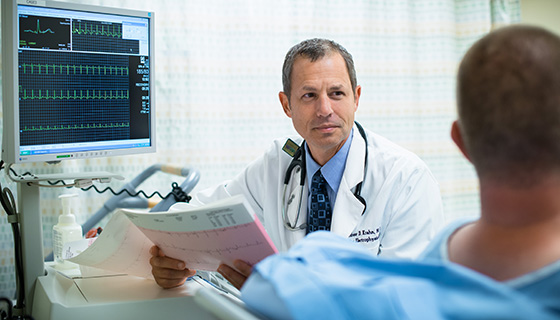A randomized controlled trial that involved two UBC cardiologists has found that patients who continued taking the blood thinner warfarin were 80 per cent less likely to develop significant bleeding after cardiac device surgery, compared to patients who were switched to another blood thinner, heparin.
The findings run counter to current guidelines for patients getting pacemakers or defibrillators to stabilize their heart rhythm. Both warfarin and heparin are used to prevent strokes caused by the formation of blood clots, but heparin was considered to have less serious side effects, and thus safer for patients undergoing surgery.
Andrew Krahn, Professor and Head of the UBC Division of Cardiology, and Anthony Tang, Professor in the Division and the Island Medical Program, were part of the steering committee of the trial designed to test the safety of both anti-coagulants, and were co-authors on an article published May 9 in the New England Journal of Medicine revealing the results. The results also were presented at Heart Rhythm 2013, the Heart Rhythm Society’s 34th Annual Scientific Sessions in Denver.
The study, funded by the Canadian Institutes of Health Research (CIHR), randomly assigned 681 patients undergoing implantable cardiac device surgery in Canada and Brazil to either continued doses of warfarin or transition to heparin. Because the warfarin patients experienced less bleeding overall, they also had fewer prolonged hospitalizations, and fewer re-operations.
“This makes things much simpler for patients,” Dr. Krahn says. “They just remain on their blood thinner pills, instead of switching to painful, expensive injections around the time of their surgery.”
“This randomized clinical trial eliminates a dilemma faced by physicians throughout the world,” said Jean Rouleau, Scientific Director of the CIHR Institute of Circulatory and Respiratory Health. “The study shows that patients requiring cardiac arrhythmia device surgery can remain on their current blood thinners, thus reducing the chance of stroke and hematoma. Our hope is that this research evidence will soon be brought to the point of care, so it can benefit patients around the world.”
